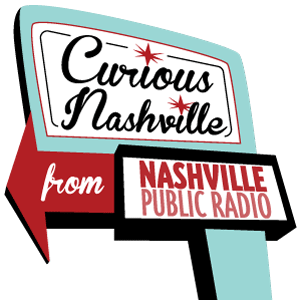
Driving is an essential part of life for most Tennesseans. But, for some, getting a license is a real challenge. That’s because tens of thousands of residents don’t understand the languages the exam is offered in.
This gap in services prompted a question to our Curious Nashville project:
Why isn’t Arabic offered on the state’s driving exam?
Just after English and Spanish, Arabic ranks as the third-most spoken language in Tennessee. Nearly 27,000 people in the state speak it.
That includes Abram Abraham, an Egyptian American who runs courses to help others in his community pass their naturalization tests. He says one of the biggest barriers for his students is transportation.
“With the weak public transportation system that we have, a lot of people, they need cars to drive to their schools, to work, you know, to just … meet their basic needs.”
That’s a sentiment that was echoed by a lot of his students at a recent night in the classroom. Some described riding the bus upwards of an hour for a trip that would have otherwise taken minutes. Others have to wait for friends or ride-hailing services to pick them up.
Abraham translated for a student who described her personal challenges before getting a license.
“She used to go to work at 2 in the morning. … And she’s not supposed to start her shift till 5 in the morning. So she had to wait three hours just to get a ride.”

With all of these complications — for thousands of residents who could benefit — Abraham wonders why the state doesn’t offer Arabic as an option on the driver’s license exam.
To find the answer, let’s first talk about how the current system works.
How is the test offered now?
The test we’re talking about is the knowledge exam, the one you take on a computer at the driving center that tests how well you know the rules of the road. (The skills exam — the part where you actually drive the car — is only offered in English.)
The knowledge exam is currently offered in five languages. One might expect English and Spanish, but you may not guess the other three: Korean, Japanese and German.
According to director of driver services Michael Hogan, that’s the result of economic development.
Hogan says the addition of Japanese and Korean (which happened in 1996) was linked to the Nissan plant in Smyrna. He says German was added around the time Volkswagen set up shop in Chattanooga.
Hogan says that’s how new languages have been added in the past. But, he says, “We’ve never closed the door on considering adding additional languages. It’s just historically, that’s what it’s been.”
There have been multiple calls in the last decade to add Arabic. Hogan has said it would cost between $3,000 and $5,000 to offer the test in Arabic, potentially more to translate the study materials. That’s a tiny fraction of the division’s annual budget of tens of millions of dollars. But he said they had other priorities back then.
Improving outlook
At the end of our interview, I asked Hogan what someone should do if they want to get Arabic considered again.
He said Abraham could reach out to his office. “We will get the the conversation started, and we’ll set up a meeting, and I’ll get the right people at the table to go from there. How about that?”
So that’s what Abraham did. A couple weeks later, he was explaining the transportation challenges of Arabic speakers directly to Hogan, and making his own economic appeal.
“There is a lot of people that could be moving to Tennessee or choose Tennessee as their destination when they come here,” Abraham said. “And these people would would be filling the gaps in our factories, in our retail stores and in multiple things.”
Hogan had already asked me to send data about what languages are most popular in Tennessee.
Then he asked Abraham about whether the exam would need to be in different dialects and what Tennessee’s peers are doing. Kentucky, Alabama and Georgia all offer the exam in Arabic.
During the meeting, Hogan told Abraham he had communicated up to other officials.
“I can’t make any guarantees, but I can at least say that the ball is in a better position now than it was a month ago.”
WPLN News will share updates if officials end up offering the knowledge test in more languages.
License offers more freedom for one new Tennessee driver
At an apartment complex in Smyrna, Zeinab Amin walks to her friend Rasha’s building. She knows from personal experience what a difference a driver’s license can make. They both moved here from Egypt in July last year and were basically homebound through much of the fall.
 Alexis Marshall WPLN News
Alexis Marshall WPLN NewsZeinab Amin, left, talks in her friend Rasha’s living room about her experience getting a driver’s license in Tennessee.
While chatting in the living room, Amin recounts how she studied intensely for three months to translate study materials and pass her exam. She explains, through an interpreter, how life has changed since receiving her license.
“Life is much easier now, she’s not imprisoned in her house and you know, if her children want to go and do something, she can take them around.”
Amin says having the exam in Arabic would have made things a lot easier. She thinks she could have passed it by studying for a few hours, instead of months.
But now — with a driver’s license — Amin is enjoying her freedom. And she’s ready to tackle some new challenges like driving at night, and navigating with GPS.
Laura Dean contributed to this report.
Still want more? You can hear an extended version of this story by searching for Curious Nashville in any podcasting app. And you can read a PDF transcript here.


